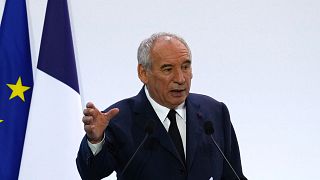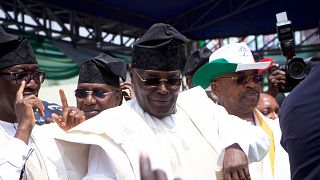Nigeria
Nigeria could be heading into a recession as its first quarter Gross Domestic Product for 2016 contracted by 0.36 percent, analysts say.
The figures released by the Nigerian Bureau of Statistics (NBS) showed a decline in growth compared to the 2.11 percent recorded in the fourth quarter of 2015 and 3.69 percent in the first quarter of 2015.
The last time Nigeria’s economy grew below 1 percent was in 1999, a few months after a return to democracy in May 1999, according to Nigerian online portal, naija.com.
The country’s oil, industries, power and manufacturing sectors all shrunk during the period under review.
Oil GDP for instance dropped to an estimated -1.89 percent from 8.28 percent in the fourth quarter of 2015.
The transport, agriculture and crop production sectors of the economy on the other hand experienced a positive growth with GDP for agriculture pegged at 3.09 percent from 3.48 percent in Q4 of 2015.
Chief Executive Officer of Financial Derivatives Limited, Bismarck Rewane is quoted by Nigeria’s Punch newspaper as saying: “We have one more month to evade a recession and that’s just not going to happen. We’ve had strikes, petrol queues and disruption in oil production, all showing we’re headed for another negative quarter.”
#Nigeria/n GDP report for January – March (Q1) 2016, according to the Nigerian Bureau of Statistics
— 'Gbénga Sèsan (gbengasesan) May 20, 2016nigerianstatpic.twitter.com/CHXVjzguDN
Nigeria, Africa’s biggest oil exporter has been affected by a slump in global crude prices which accounts for about 70 percent of the country’s income.
Last week, the Nigerian Bureau of Statistics said annual inflation had quickened to a near six-year high of 13.7 percent in April.
Investments have fallen in the west African nation as foreign firms expect an eventual devaluation of the naira due to the slump in oil revenues.
Africa analyst at Capital Economics, John Ashbourne told Reuters: “This is probably the economy’s worst performance since the mid-1990s”, in relation to the GDP figures.
Speculation has been rife that the naira may soon be devalued after the country’s vice president said last week that currency policies needed to changed to encourage investment.
The central bank has imposed currency restrictions but maintained the naira’s peg against the dollar and President Muhammadu Buhari has rejected calls by the International Monetary Fund (IMF) for a more flexible exchange rate.
The Nigerian Bureau of Statistics last Friday said oil production stood at 2.11 million barrels per day in the first quarter of 2016, as against 2.16 million barrels per day recorded in the last quarter of 2015.
The 2016 budget assumes oil production of 2.2 million barrels per day at $38 a barrel.













01:00
Pix of the Day: July 16, 2025
00:52
Nigeria's former president Buhari laid to rest in his hometown of Daura
01:00
Pix of the Day: July 15, 2025
02:03
Muhammadu Buhari's legacy: higlight of his presidential tenure
01:11
World leaders express condolences over death of Nigerian ex-president Muhammadu Buhari
00:51
Nigerian ex-president Buhari dies at 82 in London